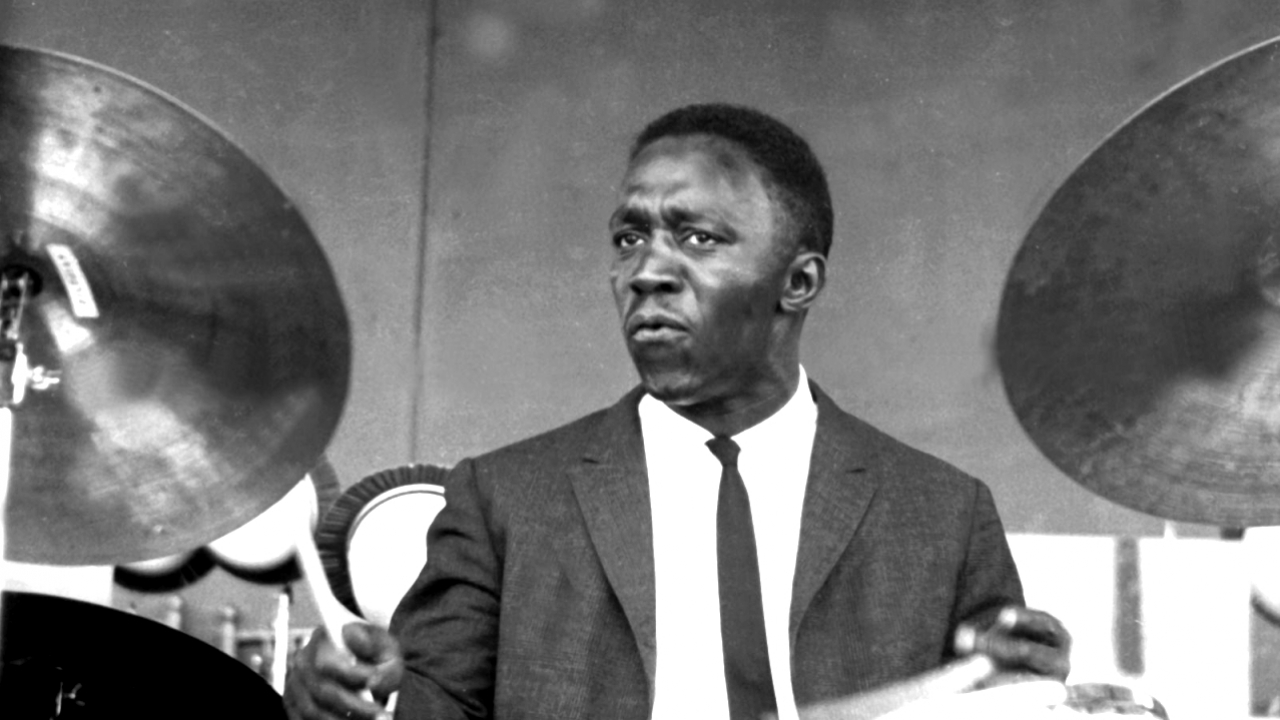Moanin' - 1958
Drums: Art Blakey
Trumpet: Lee Morgan
Tenor Sax: Benny Golson
Piano: Bobby Timmons
Bass: Jymie Merritt

Art Blakey (1919–1990) était un batteur et chef d’orchestre américain, figure essentielle du hard bop, et l’un des plus grands passeurs de l’histoire du jazz.
Avec son groupe mythique The Jazz Messengers, fondé dans les années 1950, Blakey a révélé des générations entières de jeunes musiciens — comme Wayne Shorter, Lee Morgan, Freddie Hubbard, Wynton Marsalis ou Horace Silver. Véritable école de jazz en mouvement, les Jazz Messengers mêlaient énergie, ancrage dans le blues et sophistication harmonique.
Son style de batterie est reconnaissable entre mille : puissant, dynamique, toujours au service du groove et de l’intensité collective. Blakey ne se contentait pas d’accompagner — il poussait les solistes, relançait les improvisations, imposait une urgence rythmique qui galvanisait l’ensemble.
Musicien engagé, animé d’une foi profonde (il s’est converti à l’islam dans les années 1940), Art Blakey considérait le jazz comme une force culturelle et spirituelle. Il a consacré sa vie à transmettre cette musique, à en défendre la vitalité et les racines afro-américaines. Son héritage résonne encore dans tous les groupes de jazz contemporain.
Art Blakey (1919–1990) was an American drummer and bandleader, a central figure in the hard bop movement, and one of jazz’s most influential mentors and messengers.
He is best known as the founder and driving force behind The Jazz Messengers, a legendary ensemble that became a launching pad for countless jazz greats — including Wayne Shorter, Lee Morgan, Freddie Hubbard, Wynton Marsalis, and Horace Silver. The Messengers were not just a band; they were a school of jazz, combining blues roots, gospel energy, and sophisticated harmonies.
Blakey’s drumming was powerful, assertive, and deeply rhythmic. More than just a timekeeper, he was an engine — propelling solos, energizing the group, and creating a sense of urgency and swing that made the music come alive. His style emphasized dynamic accents, explosive rolls, and an unwavering groove.
A man of deep conviction and faith (he converted to Islam in the 1940s), Blakey believed that jazz was more than music — it was a spiritual and cultural force. Through decades of performance and mentorship, he passed on the legacy of Black American music with strength, passion, and joy. His influence still echoes in today’s jazz.
